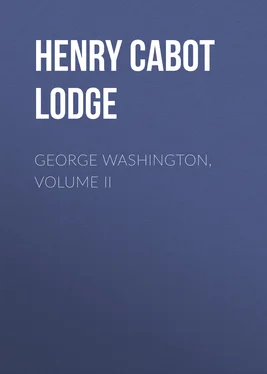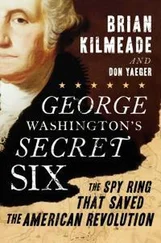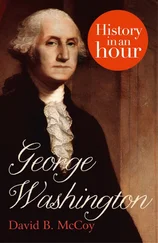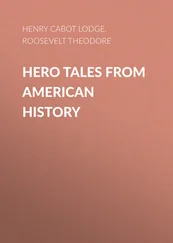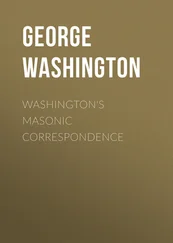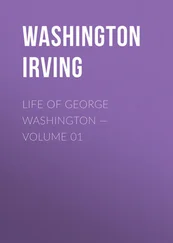Henry Cabot Lodge - George Washington, Volume II
Здесь есть возможность читать онлайн «Henry Cabot Lodge - George Washington, Volume II» — ознакомительный отрывок электронной книги совершенно бесплатно, а после прочтения отрывка купить полную версию. В некоторых случаях можно слушать аудио, скачать через торрент в формате fb2 и присутствует краткое содержание. Жанр: Биографии и Мемуары, История, foreign_edu, foreign_antique, foreign_prose, на английском языке. Описание произведения, (предисловие) а так же отзывы посетителей доступны на портале библиотеки ЛибКат.
- Название:George Washington, Volume II
- Автор:
- Жанр:
- Год:неизвестен
- ISBN:нет данных
- Рейтинг книги:5 / 5. Голосов: 1
-
Избранное:Добавить в избранное
- Отзывы:
-
Ваша оценка:
- 100
- 1
- 2
- 3
- 4
- 5
George Washington, Volume II: краткое содержание, описание и аннотация
Предлагаем к чтению аннотацию, описание, краткое содержание или предисловие (зависит от того, что написал сам автор книги «George Washington, Volume II»). Если вы не нашли необходимую информацию о книге — напишите в комментариях, мы постараемся отыскать её.
George Washington, Volume II — читать онлайн ознакомительный отрывок
Ниже представлен текст книги, разбитый по страницам. Система сохранения места последней прочитанной страницы, позволяет с удобством читать онлайн бесплатно книгу «George Washington, Volume II», без необходимости каждый раз заново искать на чём Вы остановились. Поставьте закладку, и сможете в любой момент перейти на страницу, на которой закончили чтение.
Интервал:
Закладка:
These two papers were the first strong public appeals for union. The letter to the governors argued the question elaborately, and was intended for the general public. The address to the army was simply a watchword and last general order; for the army needed no arguments to prove the crying need of better government. Before this, Hamilton had written his famous letters to Duane and Morris, and Madison was just beginning to turn his thoughts toward the problem of federal government; but with these exceptions Washington stood alone. In sending out these two papers he began the real work that led to the Constitution. What he said was read and heeded throughout the country, for at the close of the war his personal influence was enormous, and with the army his utterances were those of an oracle. By his appeal he made each officer and soldier a missionary in the cause of the Union, and by his arguments to the governors he gave ground and motive for a party devoted to procuring better government. Thus he started the great movement which, struggling through many obstacles, culminated in the Constitution and the union of the States. No other man could have done it, for no one but Washington had a tithe of the influence necessary to arrest public attention; and, save Hamilton, no other man then had even begun to understand the situation which Washington grasped so easily and firmly in all its completeness.
He sent out these appeals as his last words to his countrymen at the close of their conflict; but he had no intention of stopping there. He had written and spoken, as he said, to every one on every occasion upon this topic, and he continued to do so until the work was done. He had no sooner laid aside the military harness than he began at once to push on the cause of union. In the bottom of his heart he must have known that his work was but half done, and with the same pen with which he reiterated his intention to live in repose and privacy, and spend his declining years beneath his own vine and fig-tree, he wrote urgent appeals and wove strong arguments addressed to leaders in every State. He had not been at home five days before he wrote to the younger Trumbull, congratulating him on his father's vigorous message in behalf of better federal government, which had not been very well received by the Connecticut legislature. He spoke of "the jealousies and contracted temper" of the States, but avowed his belief that public sentiment was improving. "Everything," he concluded, "my dear Trumbull, will come right at last, as we have often prophesied. My only fear is that we shall lose a little reputation first." A fortnight later he wrote to the governor of Virginia: "That the prospect before us is, as you justly observe, fair, none can deny; but what use we shall make of it is exceedingly problematical; not but that I believe all things will come right at last, but like a young heir come a little prematurely to a large inheritance, we shall wanton and run riot until we have brought our reputation to the brink of ruin, and then like him shall have to labor with the current of opinion, when compelled, perhaps, to do what prudence and common policy pointed out as plain as any problem in Euclid in the first instance." The soundness of the view is only equaled by the accuracy of the prediction. He might five years later have repeated this sentence, word for word, only altering the tenses, and he would have rehearsed exactly the course of events.
While he wrote thus he keenly watched Congress, and marked its sure and not very gradual decline. He did what he could to bring about useful measures, and saw them one after the other come to naught. He urged the impost scheme, and felt that its failure was fatal to the financial welfare of the country, on which so much depended. He always was striving to do the best with existing conditions, but the hopelessness of every effort soon satisfied him that it was a waste of time and energy. So he turned again in the midst of his canal schemes to renew his exhortations to leading men in the various States on the need of union as the only true solution of existing troubles.
To James McHenry, of Maryland, he wrote in August, 1785: "I confess to you candidly that I can foresee no evil greater than disunion; than those unreasonable jealousies which are continually poisoning our minds and filling them with imaginary evils for the prevention of real ones." To William Grayson of Virginia, then a member of Congress, he wrote at the same time: "I have ever been a friend to adequate congressional powers; consequently I wish to see the ninth article of the confederation amended and extended. Without these powers we cannot support a national character, and must appear contemptible in the eyes of Europe. But to you, my dear Sir, I will candidly confess that in my opinion it is of little avail to give them to Congress." He was already clearly of opinion that the existing system was hopeless, and the following spring he wrote still more sharply as to the state of public affairs to Henry Lee, in Congress. "My sentiments," he said, "with respect to the federal government are well known. Publicly and privately have they been communicated without reserve; but my opinion is that there is more wickedness than ignorance in the conduct of the States, or, in other words, in the conduct of those who have too much influence in the government of them; and until the curtain is withdrawn, and the private views and selfish principles upon which these men act are exposed to public notice, I have little hope of amendment without another convulsion."
He did not confine himself, however, to letters, important as the work done in this way was, but used all his influence toward practical measures outside of Congress, of whose action he quite despaired. The plan for a commercial agreement between Maryland and Virginia was concerted at Mount Vernon, and led to a call to all the States to meet at Annapolis for the same object. This, of course, received Washington's hearty approval and encouragement, but he evidently regarded it, although important, as merely a preliminary step to something wider and better. He wrote to Lafayette describing the proposed gathering at Annapolis, and added: "A general convention is talked of by many for the purpose of revising and correcting the defects of the federal government; but whilst this is the wish of some, it is the dread of others, from an opinion that matters are not yet sufficiently ripe for such an event." This expressed his own feeling, for although he was entirely convinced that only a radical reform would do, he questioned whether the time had yet arrived, and whether things had become bad enough, to make such a reform either possible or lasting. He was chiefly disturbed because he felt that there was "more wickedness than ignorance mixed in our councils," and he grew more and more anxious as public affairs declined without apparently producing a reaction. The growing contempt shown by foreign nations and the arrogant conduct of Great Britain especially alarmed him, while the rapid sinking of the national reputation stung him to the quick. "I do not conceive," he wrote to Jay, in August, 1786, "we can exist long as a nation without having lodged somewhere a power which will pervade the whole Union in as energetic a manner as the authority of the state governments extends over the several States." Thus with unerring judgment he put his finger on the vital point in the whole question, which was the need of a national government that should deal with the individual citizens of the whole country and not with the States. "To be fearful," he continued, "of investing Congress, constituted as that body is, with ample authorities for national purposes, appears to me the very climax of popular absurdity and madness.... Requisitions are actually little better than a jest and a byword throughout the land. If you tell the legislatures they have violated the treaty of peace, and invaded the prerogatives of the confederacy, they will laugh in your face.... It is much to be feared, as you observe, that the better kind of people, being disgusted with the circumstances, will have their minds prepared for any revolution whatever.... I am told that even respectable characters speak of a monarchical government without horror. From thinking proceeds speaking; thence to acting is often but a single step. But how irrevocable and tremendous! What a triumph for our enemies to verify their predictions!… It is not my business to embark again upon a sea of troubles. Nor could it be expected that my sentiments and opinions would have much weight on the minds of my countrymen. They have been neglected, though given as a last legacy in the most solemn manner. I had then perhaps some claims to public attention. I consider myself as having none at present."
Читать дальшеИнтервал:
Закладка:
Похожие книги на «George Washington, Volume II»
Представляем Вашему вниманию похожие книги на «George Washington, Volume II» списком для выбора. Мы отобрали схожую по названию и смыслу литературу в надежде предоставить читателям больше вариантов отыскать новые, интересные, ещё непрочитанные произведения.
Обсуждение, отзывы о книге «George Washington, Volume II» и просто собственные мнения читателей. Оставьте ваши комментарии, напишите, что Вы думаете о произведении, его смысле или главных героях. Укажите что конкретно понравилось, а что нет, и почему Вы так считаете.
